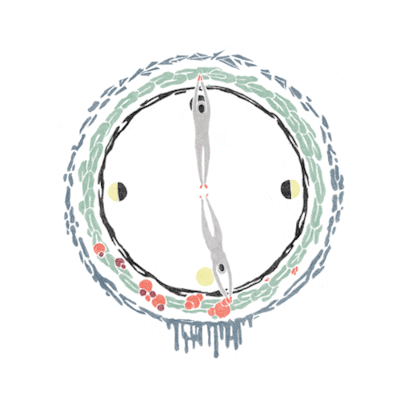一、burst into 其后通常要接名词。
She burst into tears. 她突然哭了起来。
He burst into laughter. 他突然笑起来。
The entire hall burst into thunderous cheers. 全场发出了雷鸣般的欢呼。
二、burst out 接动名词:
The poor woman burst out crying. 这个可怜的女人突然哭起来。
The children burst out laughing. 孩子们突然笑起来。
********************************************************************************************************
the variety of 后接复数名词作主语时,谓语动词要用单数;
a variety of 后接复数名词作主语时,谓语动词原则上要用复数,但有时也可用单数。
The variety of goods in this shop is rich. 这家商店的货物品种丰富。
A variety of books have been published. 出版了各种各样的书。
A variety of reasons were [was] offered for the long delay. 为这次长时间的耽搁提供了各种各样的理由。
************************************************************************************************************************
day by day 通常用作状语,且含有逐渐(gradually)转变的意思;
day after day 通常暗示时间之长久(for many many days)。
比较:
Things are getting worse day by day. 情况一天天变糟。
He is getting better day by day. 他一天天地好起来。
Day after day we waited for news from Sally. 我们一天又 一天地等着莎莉的消息。
Day after day went by, and still no message arrived. 一天天过去了,还是一直没有消息。
注:year after year 与 year by year 的区别同上。
********************************************************************************************************************
used to do 过去常常做某事
be used to doing 习惯于做某事
be used to do sth被用来做某事
如:Now he is used to getting up early.
现在他已经习惯早起了.
He used to get up early.
过去他经常早起.(意味着如今他不再早起了.)
You'll soon get/be used to hard work.
你会很快习惯于艰苦的工作的.
**********************************************************************
两者都表示过去的习惯,区别如下:
1. 若表示过去习惯性的动作,两者常可换用。如:
When we were children we would [used to] go skating every winter. 我们小时候,每年冬天都去溜冰。
2. 若表示过去持续的状态或表示过去与现在的对比,则通常要用 used to,而不用 would。如:
He used to like you. 他原来还是喜欢你的。
He is not what he used to be. 他已不是从前的他了。
He doesn’t work here now, but he used to. 他现在不在这儿工作了,但他曾经在这工作过。
*********************************************************************************
1.die away 指声音、风、光线等“渐息”、“渐弱”。如:
The sound of the car died away in the distance. 汽车的声音消失在远处。
2. die down 意为“(慢慢)熄灭”、“平静下来”。如:
The fire died down. 火慢慢熄了。
His anger has died down a bit. 他的怒气已消了一点。
3. die off 意为“一个一个地死去”(= die one by one)。
As he grew older, his relatives all died off. 随着他年龄的增长,他的亲人都一个一个地死去了。
4. die out 指家族、种族、习俗、观念等“灭绝”、“绝迹”。如:
Many old customs are dying out. 许多旧习俗正在消失。
***************************************************************************
She burst into tears. 她突然哭了起来。
He burst into laughter. 他突然笑起来。
The entire hall burst into thunderous cheers. 全场发出了雷鸣般的欢呼。
二、burst out 接动名词:
The poor woman burst out crying. 这个可怜的女人突然哭起来。
The children burst out laughing. 孩子们突然笑起来。
********************************************************************************************************
the variety of 后接复数名词作主语时,谓语动词要用单数;
a variety of 后接复数名词作主语时,谓语动词原则上要用复数,但有时也可用单数。
The variety of goods in this shop is rich. 这家商店的货物品种丰富。
A variety of books have been published. 出版了各种各样的书。
A variety of reasons were [was] offered for the long delay. 为这次长时间的耽搁提供了各种各样的理由。
************************************************************************************************************************
day by day 通常用作状语,且含有逐渐(gradually)转变的意思;
day after day 通常暗示时间之长久(for many many days)。
比较:
Things are getting worse day by day. 情况一天天变糟。
He is getting better day by day. 他一天天地好起来。
Day after day we waited for news from Sally. 我们一天又 一天地等着莎莉的消息。
Day after day went by, and still no message arrived. 一天天过去了,还是一直没有消息。
注:year after year 与 year by year 的区别同上。
********************************************************************************************************************
used to do 过去常常做某事
be used to doing 习惯于做某事
be used to do sth被用来做某事
如:Now he is used to getting up early.
现在他已经习惯早起了.
He used to get up early.
过去他经常早起.(意味着如今他不再早起了.)
You'll soon get/be used to hard work.
你会很快习惯于艰苦的工作的.
**********************************************************************
两者都表示过去的习惯,区别如下:
1. 若表示过去习惯性的动作,两者常可换用。如:
When we were children we would [used to] go skating every winter. 我们小时候,每年冬天都去溜冰。
2. 若表示过去持续的状态或表示过去与现在的对比,则通常要用 used to,而不用 would。如:
He used to like you. 他原来还是喜欢你的。
He is not what he used to be. 他已不是从前的他了。
He doesn’t work here now, but he used to. 他现在不在这儿工作了,但他曾经在这工作过。
*********************************************************************************
1.die away 指声音、风、光线等“渐息”、“渐弱”。如:
The sound of the car died away in the distance. 汽车的声音消失在远处。
2. die down 意为“(慢慢)熄灭”、“平静下来”。如:
The fire died down. 火慢慢熄了。
His anger has died down a bit. 他的怒气已消了一点。
3. die off 意为“一个一个地死去”(= die one by one)。
As he grew older, his relatives all died off. 随着他年龄的增长,他的亲人都一个一个地死去了。
4. die out 指家族、种族、习俗、观念等“灭绝”、“绝迹”。如:
Many old customs are dying out. 许多旧习俗正在消失。
***************************************************************************
[ 此帖被mmmmhao在2017-02-13 09:29重新编辑 ]
